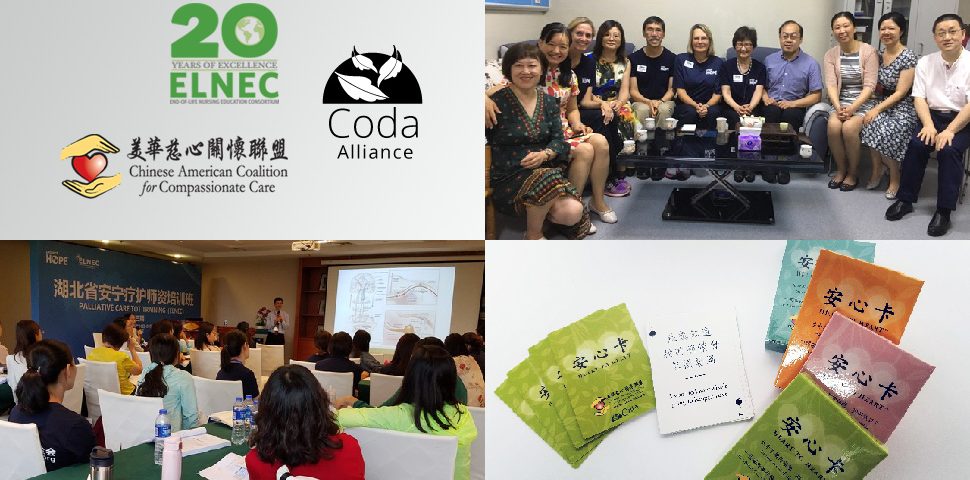Premium Automakers In China: Overcoming Market Difficulties - BMW, Porsche, And Beyond

Table of Contents
BMW's Strategies for Chinese Market Dominance
BMW has established a strong foothold in the Chinese market, employing a multi-pronged approach to maintain its leading position. Its success hinges on a combination of localized operations, advanced digital strategies, and a keen understanding of Chinese consumer preferences.
Localized Production and Supply Chains
BMW's commitment to local manufacturing is a key factor in its success. The company operates several manufacturing plants within China, significantly reducing production costs and lead times. This localization strategy also extends to sourcing components, bolstering relationships with local suppliers and fostering economic growth within the country. Specific models tailored to Chinese consumer tastes, such as long-wheelbase versions of popular sedans, further enhance this strategy.
- Significant investment in Chinese manufacturing facilities.
- Strategic partnerships with local component suppliers.
- Development of bespoke models catering to specific Chinese preferences (e.g., BMW iX3).
Digitalization and Customer Engagement
BMW leverages digital channels effectively to engage with Chinese consumers. Its robust online sales platform and targeted digital marketing campaigns reach a broad audience. Furthermore, the company actively engages with consumers on WeChat, China's dominant social media platform, fostering direct communication and building brand loyalty. Innovative digital services like online vehicle configuration and remote vehicle management enhance customer experience.
- Robust online sales platform with seamless user experience.
- Strategic use of WeChat and other social media platforms for targeted marketing.
- Implementation of innovative digital services such as remote diagnostics and maintenance scheduling.
Addressing Chinese Consumer Preferences
Understanding and adapting to Chinese consumer preferences is paramount for success. BMW carefully considers design elements, features, and even color choices to resonate with the local market. For instance, certain color options or interior trims may be far more popular in China compared to other global markets. This focus on customization caters to diverse customer segments, from younger, tech-savvy buyers to more established and traditional consumers.
- Customization options reflecting local aesthetics and preferences.
- Tailored marketing campaigns targeting different demographic segments.
- Continuous market research to track changing consumer preferences.
Porsche's Success in the High-End Segment
Porsche occupies a unique position in the Chinese luxury car market, focusing on maintaining brand exclusivity while adapting to the evolving landscape.
Maintaining Brand Exclusivity
Porsche meticulously safeguards its premium brand image. Strategic pricing, limited edition releases, and a focus on personalized customer experiences all contribute to its exclusive appeal. The brand meticulously manages its supply to ensure a level of scarcity that enhances desirability.
- Precise pricing strategies to maintain brand prestige.
- Limited edition models to create a sense of exclusivity.
- Emphasis on exceptional customer service and bespoke experiences.
Leveraging Brand Heritage and Emotional Connection
Porsche’s rich motorsport heritage and brand legacy resonate deeply with Chinese consumers. Marketing campaigns effectively utilize this heritage to create an emotional connection with potential buyers, tapping into a sense of aspiration and performance.
- Marketing campaigns that highlight Porsche's racing history and performance pedigree.
- Emphasis on craftsmanship and the emotional value of owning a Porsche.
- Focus on building lasting relationships with customers.
Adapting to the EV Shift
Porsche recognizes the importance of electric vehicles (EVs) in the Chinese market and is actively investing in its electric vehicle strategy. This includes aligning with government policies promoting EVs, building robust charging infrastructure, and adapting its models to meet evolving regulatory requirements.
- Investment in electric vehicle (EV) technology and infrastructure.
- Adaptation to government regulations concerning EVs and emissions.
- Strategic partnerships with charging infrastructure providers.
Challenges Faced by Premium Automakers in China
Despite the opportunities, premium automakers face significant challenges in the Chinese market.
Intense Competition
The Chinese automotive market is fiercely competitive, with both established international brands and rapidly growing domestic manufacturers vying for market share. This competition puts pressure on pricing and necessitates strong product differentiation. Chinese brands are increasingly encroaching on the premium segment.
- Competition from both established international and rapidly growing domestic brands.
- Pressure to offer competitive pricing while maintaining brand image.
- Need for strong product differentiation and innovation.
Government Regulations and Policies
Government regulations concerning emissions, safety standards, and import tariffs significantly impact premium automakers. Navigating these constantly evolving regulations requires proactive adaptation and compliance.
- Compliance with stringent emission standards and safety regulations.
- Impact of import tariffs and other trade policies.
- Adapting to changing government incentives and policies.
Economic Fluctuations and Consumer Sentiment
Economic downturns and shifts in consumer sentiment can significantly impact demand for luxury goods, including premium automobiles. Geopolitical factors can further influence market stability and consumer confidence.
- Vulnerability to economic fluctuations and shifts in consumer spending.
- Impact of geopolitical factors on market stability and consumer confidence.
- Need for robust risk management and adaptability.
Beyond BMW and Porsche: Other Key Players and Future Trends
Other key players like Mercedes-Benz and Audi also maintain a substantial presence in the Chinese market. Emerging trends like electric vehicles (EVs) and autonomous driving technologies are reshaping the landscape, presenting both opportunities and challenges. The future will likely see increased competition, a focus on sustainable mobility, and a continued emphasis on understanding and catering to the unique preferences of Chinese consumers.
Conclusion: The Future of Premium Automakers in China
Success for premium automakers in China hinges on a multifaceted strategy that integrates localized production, cutting-edge digital engagement, and a profound understanding of local consumer preferences. Adapting to government regulations and economic fluctuations is equally vital. While the market remains challenging, the immense potential rewards make it a crucial area of focus for global luxury car brands. To learn more about the strategies of premium automakers in China and the evolving dynamics of this dynamic market, explore industry reports and analyses from leading automotive consultancies.

Featured Posts
-
 Oni Byli Kak Bratya Kuper I Di Kaprio Pravda O Razlade
May 04, 2025
Oni Byli Kak Bratya Kuper I Di Kaprio Pravda O Razlade
May 04, 2025 -
 The Count Of Monte Cristo A Port Macquarie News Review
May 04, 2025
The Count Of Monte Cristo A Port Macquarie News Review
May 04, 2025 -
 Britains Got Talent Addresses Teddy Magic Fan Questions
May 04, 2025
Britains Got Talent Addresses Teddy Magic Fan Questions
May 04, 2025 -
 I Kontra Emma Stooyn Margkaret Koyalei Sta Oskar I Analysi Vinteo Apokalyptei Ta Panta
May 04, 2025
I Kontra Emma Stooyn Margkaret Koyalei Sta Oskar I Analysi Vinteo Apokalyptei Ta Panta
May 04, 2025 -
 Super Bowl 2025 Bradley Cooper And 7 Year Old Daughter Leas Adorable Matching Outfits
May 04, 2025
Super Bowl 2025 Bradley Cooper And 7 Year Old Daughter Leas Adorable Matching Outfits
May 04, 2025
